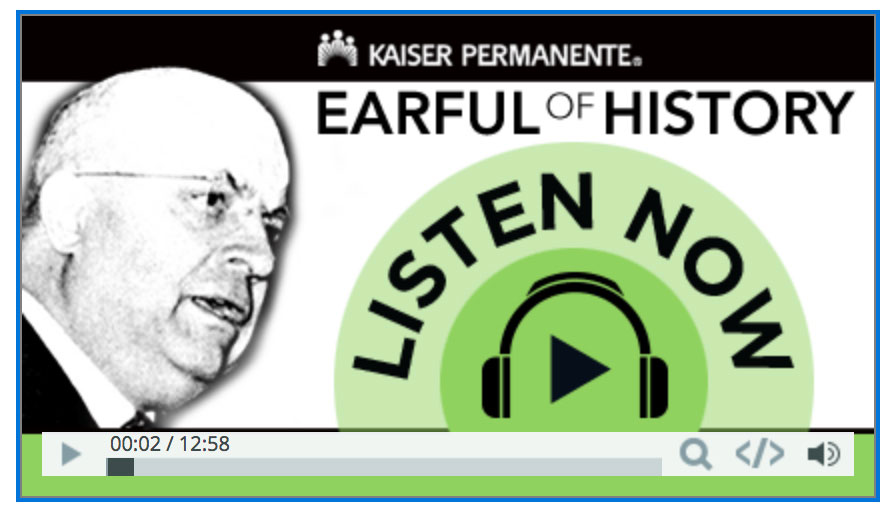Congress must protect Medicaid and insurance tax credits
Medicaid and tax credits for acquiring coverage are essential for patients, the economy, and the health care system.
Today, only 8% of Americans are uninsured. This is a remarkable improvement compared to the days when 1 in every 5 Americans did not have health insurance.
This improvement was no accident.
Over the past several years, record numbers of people enrolled in insurance coverage through the federal and state insurance marketplaces.
At the same time, Medicaid has given millions of Americans access to the front door of the health care system.
Over 13 million more Americans gained coverage via Medicaid expansion since 2013.
This coverage has led to better health and financial security for millions of American families. It has bolstered state economies and the health care system.
Unfortunately, possible changes in federal policy present a dual threat, which could put this progress at risk.
Expanding coverage to people in need
The federal and state insurance marketplaces are online platforms where people can compare and buy health coverage if they’re purchasing it on their own.
These marketplaces have premium tax credits to bring monthly individual and family premium payments down to more affordable levels for people with low and moderate incomes.
In 2021, a new law made coverage more affordable for more people by implementing enhanced premium tax credits. In 2022, those enhanced credits were extended through 2025.
Making coverage more affordable helped a record-breaking 24.2 million consumers sign up for coverage in the federal and state marketplaces in 2024.
Meanwhile, Medicaid expansion has covered millions more people.
Using both state and federal funding, Medicaid has provided access to care for people with low incomes and people with disabilities for over 60 years.
Since 2013 many states expanded Medicaid eligibility with increased federal matching funds. The program now covers more than 70 million Americans.
Not only has Medicaid expansion cut the rate of non-elderly uninsured adults by more than half, it has also improved health and reduced mortality.
Both the enhanced premium tax credits and Medicaid provide important options for people experiencing life changes. Taken together, these 2 programs also helped more people who were already insured keep their coverage.
For example, a person seeking work may be enrolled in Medicaid. That same person may become eligible for affordable coverage through their state marketplace after securing a job if their new employer doesn’t offer health coverage.
Millions of Americans may be at risk
Our country now faces the stark potential that all of this progress will be reversed.
The current policy discussions, including possible cuts to Medicaid funding, could result in people losing eligibility for the program.
If that were to happen, some Americans might try to sign up for coverage through the marketplaces. And historically they have found some affordable options. But now there is a problem. Marketplace coverage will be less affordable unless Congress acts to extend enhanced premium tax credits.
The average marketplace enrollee saved an estimated $700 in 2024 because of the enhanced premium tax credits. But, the enhancements expire at the end of 2025.
If they’re not extended, nearly everyone who buys coverage via the marketplaces will face significantly higher monthly payments.
Without an extension of the enhanced tax credits, the Congressional Budget Office estimates that the number of uninsured people will rise by 2.2 million in 2026. This number could increase by 3.7 million in 2027.
Either change — allowing enhanced premium tax credits to end and changing Medicaid funding and eligibility — would make it harder for individuals and families to afford coverage. In combination both would create vastly more financial hardship and keep coverage out of reach for more people.
People without coverage often skip necessary care, leading to worse health outcomes. For people in poor health, the results can be dangerous.
A distressed health care system
Expiration of the enhanced premium tax credits would result in a $6.3 billion increase in uncompensated care — that is, services that doctors and hospitals are not paid for — because of the increased number of people without insurance who cannot afford to pay out of pocket.
Some of the potential changes to Medicaid could increase uncompensated care by $19 billion.
Hospitals absorb most of these costs. Ultimately, this means fewer services, higher prices, and reduced investments in their local community.
This is especially dangerous at a time when many hospitals are facing the risk of closure.
Economic impacts
If Medicaid funding is cut and enhanced premium tax credits expire, there will also be harm to state and local economies as people lose coverage and the health care sector loses jobs.
Uninsured Americans have few resources to make ends meet when they have to pay out of pocket for urgent medical care for their families. This presents a financial challenge to the health care system. In turn, health care employers like hospitals would reduce jobs and spending, leading to broader projected job losses.
A new analysis shows that if the enhanced premium tax credits expire, state economies would lose $34 billion in gross domestic product and the country would experience 286,000 job losses nationwide. Nearly half of the jobs lost would be in hospitals, doctors’ offices, and pharmacies.
States that chose not to expand Medicaid would be hit the hardest if enhanced premium tax credits expire because there are no other affordable coverage options. For example, the 10 states that have not expanded Medicaid — Alabama, Florida, Georgia, Kansas, Mississippi, South Carolina, Tennessee, Texas, Wisconsin, and Wyoming — would lose 194,000 of the 286,000 total jobs.
Our commitment to affordable coverage for everyone
At Kaiser Permanente, we believe that everyone should have access to high-quality, affordable health care.
This can be achieved through a mix of public and private coverage.
As part of our commitment to the communities we serve, we care for 1.5 million people who are insured through Medicaid and over 800,000 who are enrolled in Kaiser Permanente coverage through the marketplaces.
To protect Americans, our health care system, and the economy, we urge Congress to extend the enhanced premium tax credits. We urge them to retain the current share of federal funding for Medicaid and continue coverage for adults with low incomes.
Policymakers should prioritize preserving what is successfully delivering for families as they seek budget savings to advance other preferences.



















































